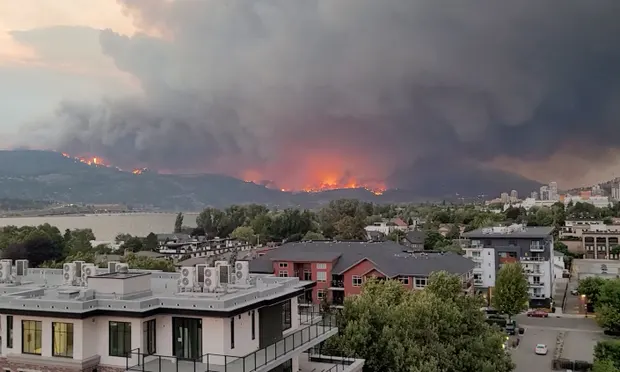Canada Urges Meta to Revoke News Ban Amidst Wildfire Crisis
In a move that has sparked concern and criticism, the Canadian government has called upon Meta, the parent company of Facebook and Instagram, to rescind its recent ban on domestic news content. This request comes as citizens grapple with spreading wildfires in the western regions of the country and seek reliable sources of information.
The ban was enacted by Meta in response to a newly implemented law that mandates internet giants to pay for news articles. However, the prohibition has been met with opposition, particularly from those directly impacted by the wildfires. Evacuees from the remote northern town of Yellowknife have voiced their frustration, stating that the ban hampers their ability to share crucial updates regarding the fires.

Heritage Minister Pascale St-Onge expressed her concern over Meta’s decision, labeling it as “reckless” and asserting that it impedes access to vital information on both Facebook and Instagram. She underscored the urgency of the situation, emphasizing the need for news sharing to aid Canadians facing the ongoing emergency.
Transport Minister Pablo Rodriguez echoed these sentiments, highlighting how the ban is depriving people of essential information during a critical time. Chris Bittle, a legislator from the ruling Liberal Party, went a step further, denouncing Meta’s actions as irresponsible and potentially detrimental.
Ollie Williams, the operator of Yellowknife’s Cabin Radio digital radio station, shed light on the alternative measures people are resorting to in order to disseminate information. Due to the inability to share news links, individuals have turned to posting screenshots of pertinent information on Facebook.
In response to the outcry, a spokesperson from Meta revealed that the company had activated the “Safety Check” feature on Facebook. This feature allows users to indicate their safety status in the aftermath of a natural disaster or crisis, facilitating communication in times of need.
However, Meta also emphasized that Canadians can still access content from official government agencies, emergency services, and non-governmental organizations via Facebook and Instagram. The spokesperson reiterated that users primarily engage with the platform for reasons other than news consumption.
Meta’s stance on the ban rests on the argument that the obligation to pay for content shared on its platforms is unsustainable for its business model. This dilemma reflects the ongoing tension between digital platforms and the news industry.
In conclusion, the plea from the Canadian government to revoke the ban on domestic news content highlights the critical role news sharing plays, especially during emergencies like wildfires. The situation underscores the intricate relationship between social media platforms and the dissemination of timely, accurate information.




